
Paris: French leader Emmanuel Macron faced warnings against complacency on Tuesday despite polls showing a solid lead over far-right leader Marine Le Pen, one day ahead of a debate crucial to the outcome of the presidential election.
Macron will go head-to-head with Le Pen late on Wednesday in their only direct clash ahead of Sunday’s second-round vote, an encounter set to be watched by millions of French.
Some polls are predicting a lead of around 10 points for Macron over Le Pen in the run-off but undecided voters and abstentions could yet swing the figures.
Both candidates are particularly keen to woo the electorate of hard-left candidate Jean-Luc Melenchon, who finished a strong third in the first round.
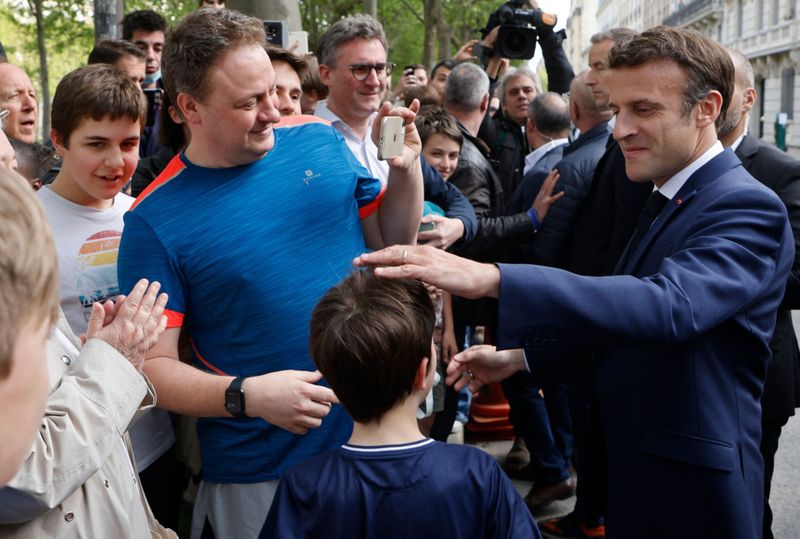
The vote will mark the closest the far right has been to seizing the Elysee presidential palace. Marine Le Pen’s father Jean-Marie was crushed by Jacques Chirac in the 2002 run-off election and she was easily beaten by Macron in 2017.
Opinion polls currently put the centrist Macron at 53 to 56 per cent in the run-off against 44 to 47 per cent for Le Pen - a much tighter finish than five years ago, when Macron carried the vote with 66 per cent.
“The game isn’t over yet and we certainly can’t draw conclusions ... that this election, this match, is already decided,” Prime Minister Jean Castex told France Inter radio.
“We have to convince the French that Emmanuel Macron’s programmes are the best for France and for them,” he said. He added that if Macron won, his government would resign to give the ruling party new impetus ahead of legislative elections in June.
‘Either could win’
Castex’s predecessor as prime minister, Edouard Philippe, mayor of the northern city of Le Havre and a heavyweight centre-right backer of Macron, said nothing could be taken for granted due to the numerous “unknowns” hanging over the election and, above all, abstentions.
He told Le Figaro newspaper on Monday that the so-called Republican front - which in past elections had seen French of all political stripes line up against the far right - “was no longer a natural reflex”.
“Right now, either candidate could win,” added another ally, Francois Bayrou, the leader of the pro-Macron Modem party.
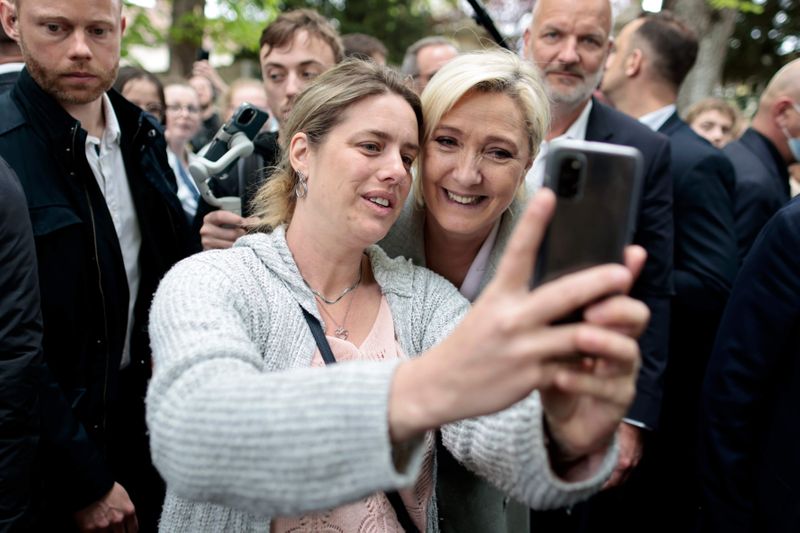
Macron had himself made clear he does not see the election as being in the bag, reminding voters of the political earthquakes of 2016 when Britons voted to leave the EU and Americans put Donald Trump in the White House.
“Think back to what British citizens were saying hours before the Brexit (referendum) or in the US before the Trump vote came: ‘I’m not going (to vote). What’s the point?’ I can tell you that the next day they regretted it,” Macron told France 5 television.
“So if you want to avoid the unthinkable or something that revolts you, choose for yourself,” he said.
‘Kick in the backside’
The run-off debate is traditionally a pivotal moment in French presidential elections and will be broadcast live on national television from 1900 GMT on Wednesday.
For Le Pen, it represents a final chance to haul back ground in the polls and convince France she has moderated her anti-immigration party into a mainstream force.
Macron is likely to seek to portray her as a dangerous extremist who cannot be trusted on foreign policy - especially after Russia’s invasion of Ukraine, due to her past close ties with President Vladimir Putin.
Le Pen was reportedly spending all Tuesday with her closest aides to rehearse the debate, with no trips on the agenda, to avoid the fumbling and missteps that marked her performance in 2017.
“For me, failure is sometimes a kick in the backside,” she told TF1 TV, again acknowledging that she had not been up to scratch in 2017.
She has vowed to ban the wearing of the Islamic headscarf in public but close lieutenants have rowed back on this somewhat, with her spokesman Sebastien Chenu admitting on BFM television that it was a “complex problem”.
Past clashes in presidential debates
1974: Hearts and minds
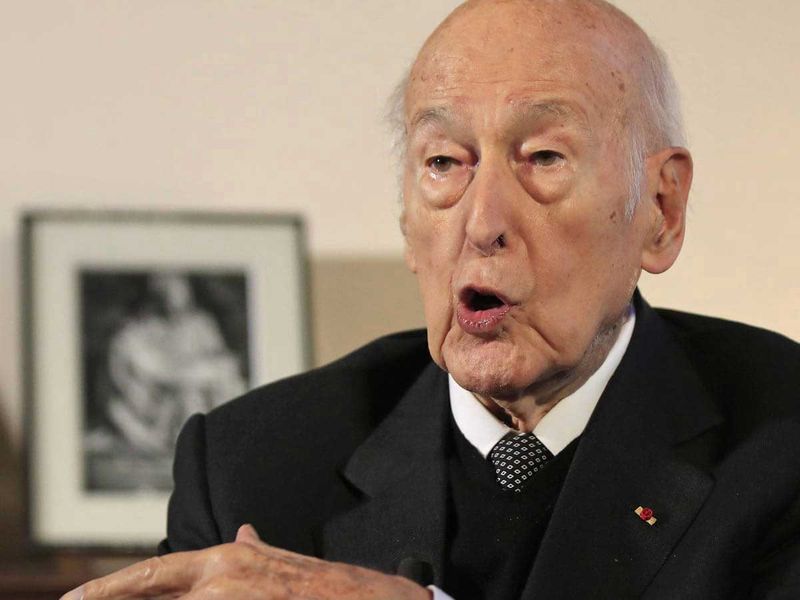
Around 25 million people tuned in for France’s first ever US-inspired televised presidential debate, pitting Socialist candidate Francois Mitterrand against centrist finance minister Valery Giscard d’Estaing.
The two were neck-and-neck in the polls but the patrician Mitterrand’s attempts to lecture his reform-minded opponent on wealth redistribution backfired.
“It’s a matter of heart not just intelligence,” Mitterrand argued, to which Giscard retorted: “You don’t have a monopoly on the heart, Mr. Mitterrand.”
Giscard won the election.
1981: ‘Man of the past’
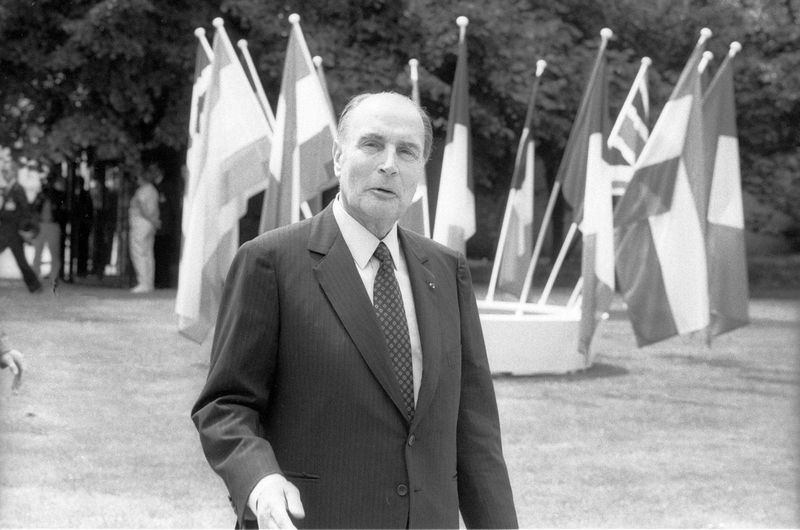
Seven years later, the two met again, with Mitterrand itching to take revenge.
This time, the incumbent was the one talking down to his opponent, calling him a “man of the past” and asking him to prove his economic credentials by quoting the franc-deutschmark exchange rate.
“I’m not your student!” Mitterrand objected.
Giscard suffered the ignominy of being the first French president voted out after a single term.
1988: President vs premier
1988 produced the strange spectacle of a president taking on his own prime minister. Mitterrand and centre-right candidate Jacques Chirac were uneasy bedfellows in what the French call a “cohabitation”, where the president and government are from opposite sides of the left-right divide.
Sparks flew when Chirac insisted on calling the incumbent “Mister Mitterrand” instead of “Mister president.”
“Tonight I’m not the prime minister and you’re not the president of the republic...We’re two equal candidates,” Chirac said.
“You’re quite right, mister prime minister,” Mitterrand snapped back. Mitterrand got re-elected.
1995: Return of the right
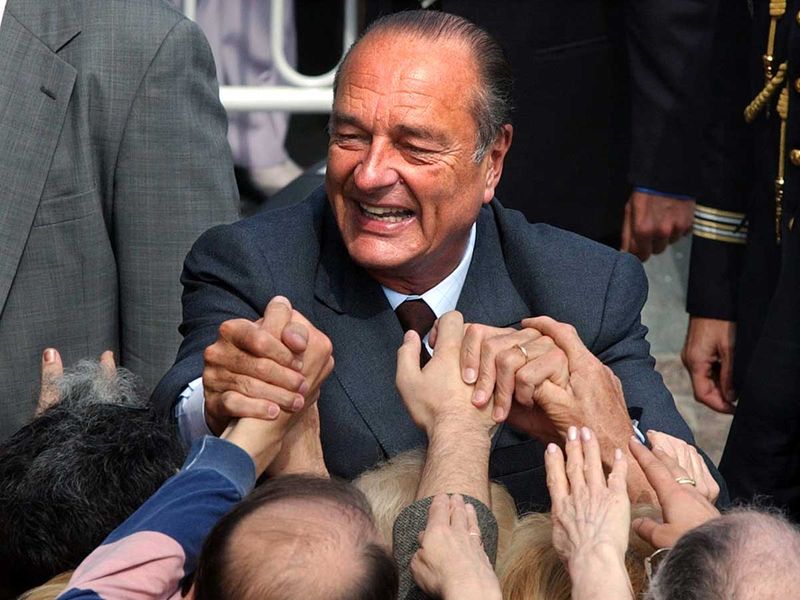
While the first three debates got voters’ blood up, the excessively civil duel between Chirac and former Mitterrand minister Lionel Jospin in 1995 was met with howls of disappointment.
The only memorable line from their exchange was Jospin’s claim that “it’s better to have five years with Jospin (he backed the shift from a seven-year to a five-year presidential mandate) than seven years with Chirac.”
Chirac triumphed nonetheless, winning back the presidency for the right.
2002: No debate with Le Pen
In 2002, France was in shock after far-right leader Jean-Marie Le Pen overtook Jospin in the first round of the election to tee up a spot in the run-off against the incumbent Chirac.
Chirac refused to have a debate with Le Pen saying that “faced with intolerance and hatred, no debate is possible.” Le Pen accused him of “copping out.”
Backed by moderates from both the right and left Chirac trounced the former paratrooper.
2007: ‘Calm down!’
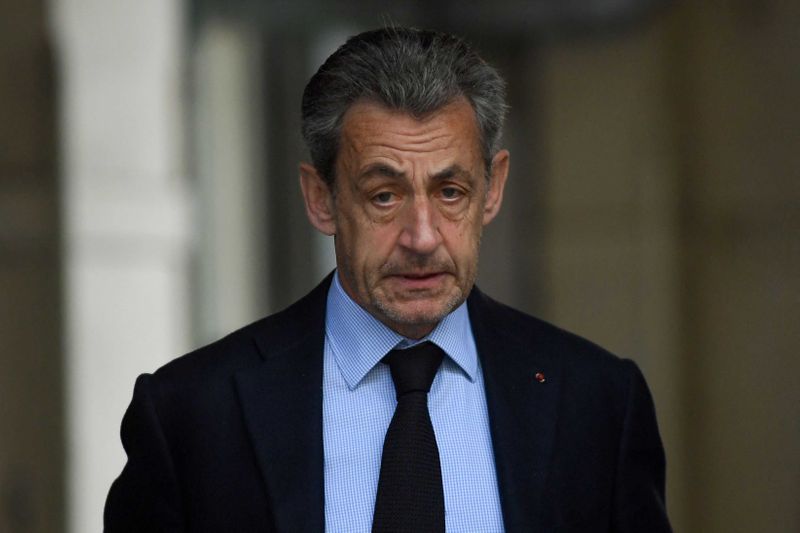
The first woman to make a presidential run-off, the Socialist Party’s Segolene Royal, went on the attack in 2007 against then interior minister Nicolas Sarkozy over support for the disabled.
Sarkozy, who has a reputation for irascibility, refused to take the bait. “Calm down!” he tells her. “To be a president, you have to be calm.” Royal refused to concede the point, insisting her anger is “very healthy”. Sarkozy won.
2012: ‘I, president’
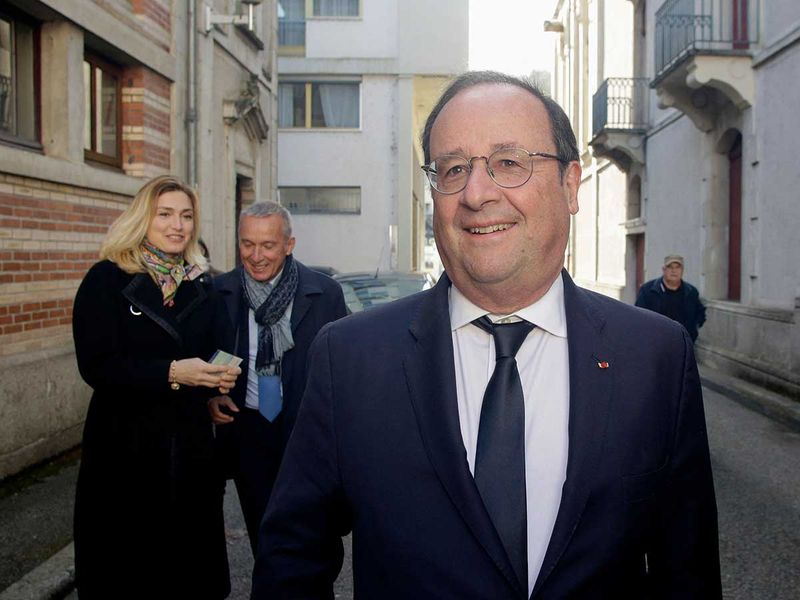
Five years later, the pugnacious Sarkozy badly needed to land a knockout blow on Royal’s former partner Francois Hollande in order to hang onto the presidency. The taunts flew. Sarkozy called Hollande “a little slanderer” and accused him of lying.
But it is the Socialist Party leader, who had campaigned as a Mr Normal, who delivered the most memorable lines.
In a series of statements starting “I, as president of the republic” he set out plans to clean up the tainted political landscape bequeathed by his rival. Hollande won.
2017: Wipeout
The 2017 debate, pitting nationalist Marine Le Pen - daughter of Jean-Marie who made history when he got into the run-off round in 2002 - against liberal centrist Macron is deemed the most brutal of all.
Le Pen was accused of drawing from Donald Trump’s populist playbook by mocking Macron’s relationship with his wife, Brigitte. Macron for his part accused her of “lies”.
Le Pen got increasingly flummoxed and rummaged through her notes when Macron, a policy wonk, took her to task on her economic programme, including her plans to bring back the French franc.
Le Pen later admits that she “failed” the test. Macron won.
- AFP












